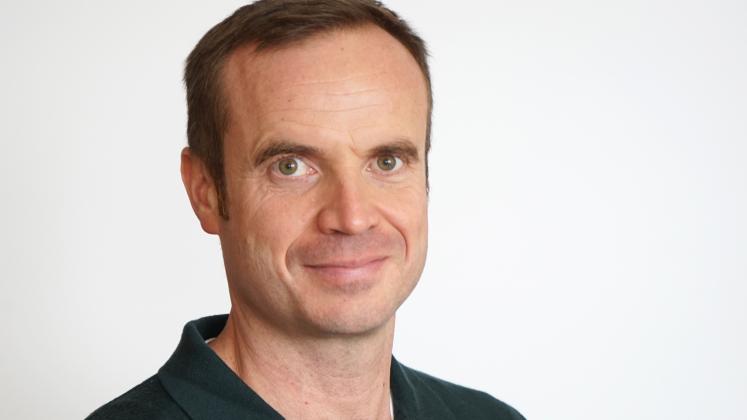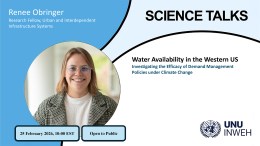On 27 February 2024, UNU will host “Human Mobility in the Context of Climate Change: Building Capacity Through E-learning”, a BIG IDEAS Dialogue with Dr. Robert Oakes, Senior Researcher at UNU-EHS. This online event will be held via Zoom webinar at 18:00 JST (UTC+9).
Human mobility in the context of climate change (HMCCC) is a significant challenge to the international community, and is directly or indirectly related to a range of Sustainable Development Goals. In this context, the Environment and Migration: Interactions and Choices (EMIC) Division, and the Pan African Cooperation and Educational Technologies (PACET) Programme of UNU-EHS recently worked with the German Development Agency (GIZ) to launch the first interactive e-learning course on HMCCC. This free online course consists of four modules for the different types of human mobility (migration, displacement, planned relocation and immobility), with additional modules on important cross-cutting themes such as gender, the role of conflict, and international frameworks to govern climate mobility.
Dr. Oakes will join UNU Senior Vice-Rector Sawako Shirahase for a presentation that will cover the e-learning course's diverse set of interactive elements that engage learners through short videos, animations, interactive graphics, personal stories and quizzes to test learners’ progress. The talk will show that through engaging with students, practitioners and policymakers in a user-friendly way, UNU research can inform them of the nuances, risks and opportunities HMCCC presents and build capacity for the attainment of the Sustainable Development Goals and beyond.
About the speaker
Dr. Robert Oakes works in the Environment and Migration: Interactions and Choices (EMIC) Division at UNU-EHS. He researches the reasons for, and outcomes of, mobility including evacuation, displacement, voluntary migration and planned relocation, in addition to those who are unwilling or unable to move. In so doing, he hopes to contribute to understanding in which circumstances mobility should be considered a form of adaptation, and when it represents loss and damage.
Much of his research has considered how place attachment and subjectivity interact with more structural factors to influence decisions to move. He has specific interests in health and the way in which children are affected by climate mobility. He is adept at qualitative and quantitative research tools with expertise in Q method and agent-based models.
Robert has worked on major climate migration projects, such as the Pacific Climate Change and Migration project with UNESCAP, UNDP and ILO, and the Migration, Environment and Climate Change: Evidence for Policy project with IOM. He has consulted for Wetlands International, UNICEF, IOM, GIZ and Germanwatch.
He connects his work to policy and he is a regular contributor to UNFCCC processes and the Platform on Disaster Displacement and is involved in the CliMigHealth network, Climate Resilience Initiative and City Responses to Climate Risks Initiative.
Robert currently manages the UNU-EHS contribution to the EU-funded projects LOCOMOTION and RethinkAction, where his role is concerned with humanizing models which seek to understand transition pathways.
He undertook his PhD at the University of Sussex where he investigated evacuation decision-making in the contexts of hurricanes and lectured on sustainable development and environmental risk. At UNU-EHS he lectures on environmental migration and how it relates to health, and has recently worked with the EMIC and PACET teams to develop an e-learning resource on human mobility in the context of climate change.





